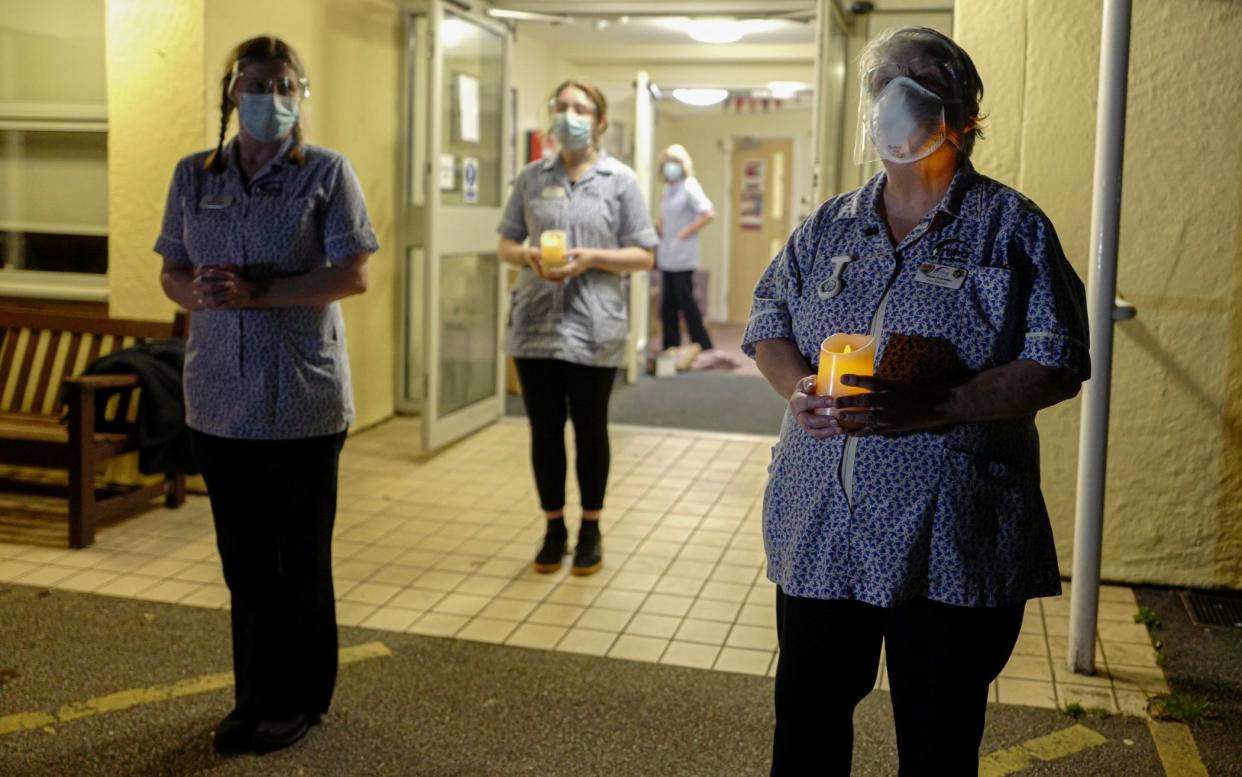A history of failure: How successive governments have failed to solve social care crisis

- Oops!Something went wrong.Please try again later.
In September 1997, Tony Blair, the then Prime Minister, told the Labour Party conference: "I don't want [our children] brought up in a country where the only way pensioners can get long term care is by selling their home".
Shortly afterwards, in response to a manifesto pledge, his Government convened a Royal Commission to consider reform of the funding system for the long-term care of older people. This recommended that personal care should be free – a proposal that was rejected by the government.
Since then, a string of White Papers, select committees, independent reviews, campaigns and protests have made only small progress in tackling the issue of how social care should be accessed, funded and provided in the UK.
As Boris Johnson, the incumbent Prime Minister prepares to set out his legislative agenda for the coming year on Tuesday, with some 25 bills being unveiled in the Queen’s Speech, those on the front line of social care – as well as concerned family and friends with loved ones in care homes – are preparing for disappointment.
The Queen’s Speech will cover topics such as asylum, education, electoral reform and post-Brexit aid. But despite Conservative promises there is expected to be no reform for social care.
Mr Johnson did not know that a pandemic would cripple the world’s economies and healthcare systems when he stood on the steps of Downing Street in 2019 and promised to fix the crisis in social care “once and for all”.
He said there was a “clear plan we have prepared”. Two years later, that plan is nowhere to be seen. Meanwhile, Covid has ravaged the UK care sector, killing tens of thousands of care home residents – many of whom had to sell their homes to live in such care homes.
Under current rules, people with assets over £14,250 have to pay for some of their care costs, while those with assets over £23,250 must meet their bills in full.
The cost of reform, as well as sustainable funding, is a problem that has blighted every government. The social care crisis, combined with an increasing ageing population, was in a state of crisis even before the pandemic.
During the era of austerity under David Cameron and his Chancellor, George Osbourne, demand for care continued to increase much faster than funding was dished out to councils. This resulted in many care homes either cutting services or closing their doors for good.
Between 2010 and 2019, spending per person on adult social care fell by around 12 percent in real terms, according to the Health Foundation.
Last year, the health committee recommended that the sector needed an additional £7 billion per year by 2023-24 to cover demographic changes, improve poor pay rates for carers and protect people who face “catastrophic” social care costs. That would mean an extra 34 per cent on the 2023-24 budget.
Research from Age UK, released on Tuesday morning, showed 23 per cent of people aged 60 and over found their ability to carry out everyday activities without support had worsened since the first lockdown.
The Association of Directors of Adult Social Services also found that one third of adult social care providers said there had been an increase in unmet need due to the pandemic and has repeatedly warned of a care crisis.
The origins of institutionalised social care came about during the birth of the Welfare State in 1948. Yet every Prime Minister since Mr Blair has made effusive speeches promising to reform or fix the situation. The consensus regarding the need for reform is consistent, but not much has changed.
As James Bethell, the social care minister, told the House of Lords last October: “There simply is not the management or political capacity to take on a major generational reform of the entire industry in the midst of this massive epidemic.”
The Local Government Association wrote to Rishi Sunak, the Chancellor, and other ministers on Monday to argue that a failure to act on social care in the Queen’s Speech “will be a bitter blow” to the sector.
The test of the Queen’s Speech will be whether Mr Johnson delivers on his word.
